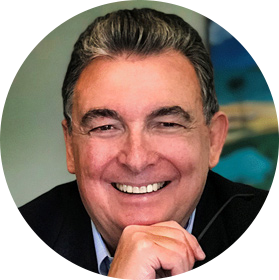Who am I? Around 95% of people in the USA can’t answer this question!
“…Do not be conformed to this world, but be transformed by the renewing of your mind…”—Romans 12:2
The Challenge
Every day we are being told who and what we are supposed to be. If it’s not a political or an advocacy group, then it is an ad on our phone or TV. Either we are supposed to be “less wrinkled” or “more tolerant” or “more vigilant” or “more successful” or “more highly educated” or “a harder worker” or “slimmer” or “prettier” or “healthier” or “in better shape” . . . and the list goes on. Although some causes and advice can be beneficial, whereas others may not, none of them define who you truly are. They tend to encourage us to compare ourselves to others, and somehow, we alwaysseem to fall short. This constant input can be counterproductive, creating feelings of a lack of confidence, inadequacy, and that feeling of “being stuck.”
Although some causes and advice can be beneficial, whereas others may not, none of them define who you truly are. Things may seem hopeless in our lives. We are faced with multiple challenges, and unless we face the personal challenges such as fear, pain, hurt, failure, blame, and criticism, we will stay stuck in our feelings of hopelessness because we are not dealing with the root cause of how we deal with the number one challenge of our life—the foundation: Who am I?
We all need to:
- Know who we are (in Christ)
- Get past the fears that hold us down
Our society encourages people to take their identity from what they do, their job title, their social status, how they look, what they drive or wear, who their associates are, what clubs they belong to or sports teams they support, etc. The problem is, if you cannot separate who you are from your ideas, then you will be basing your self-worth upon whether your ideas are accepted by others. This makes a person extremely vulnerable in their interactions with others, and in their own self-assurance.
For example, you may be thinking, If you accept my idea, then you accept me. So, the resulting thought and conclusion is, If you reject my idea, you are rejecting me! This kind of thinking results in communication problems because there is no connection; people feel hurt, feel rejected, get angry, withdraw, and begin to discount their own ideas, experiencing anxiety and depression, and they become fearful to share their thoughts. They may continually tend to give in to others to “keep the peace,” but if it continues, they may become resentful, blaming others, and the other person may not even be aware. This can result in feelings of anger and vengefulness; eventually, they may even begin to attack others. Feelings of covetousness, jealousy, and envy may arise, because they are never satisfied with who they think they are and see others as a threat to them or their position.
All Because a Person Does Not Know Who They Are
None of this has anything to do with who they are, but has to do with reacting to an assumption based upon a false idea—just because someone does not agree with them. Based on empirical research and clinical practice, it is estimated that 95% of people in the U.S. do not know who they are. The result? We can find ourselves vulnerable to the influence of what is around us, instead of being secure in who we really are. This affects communication and relationships with family, coworkers, friends, acquaintances, neighbors, people in authority or public figures, etc. When we become secure in who we are, we find ourselves to be less vulnerable to those around us.
So, the question becomes: How do we become secure in who we are? When you realize you are greatly loved and created by God for a purpose, that realization becomes the beginning of your path toward TRUE self-discovery. I would challenge you, this week, to take notes on every TV or Internet ad you see, or even hear on the radio. Every ad will address what the public “needs.” This is simply Marketing 101! Look for the indirect, subliminal or even direct attacks on your self-worth. In what areas are they telling you that you are insufficient or lacking? Is it your appearance, education, health, or social status? This doesn’t mean it is all bad or evil, but you can heighten your awareness of what your mind has been taking in without even noticing, contributing to discontentment because of the false ideas of who the world says you really are. You may be surprised at how much unintentional input you have been subjected to—and this doesn’t even begin to address the messages conveyed by our entertainment.
The Results of Not Knowing Who You Are:
- You are emotionally vulnerable.
- You are constantly trying to please others or argue your point.
- You make emotional concessions—and do not gain internal confidence and self-assurance.
- Life is a never-ending circle of fear and stress.
- Most importantly, you don’t know who you are in Christ.
The Results When You Know Who You Are:
- You don’t need to argue or feel hurt when others disagree with you.
- You feel emotionally stronger and less vulnerable around others.
- You gain inner confidence and self-assurance.
- This lowers your inner anxiety and stress.
- You know who you are in Christ.
*For more information on who you are, you can get the book Who Am I? at www.journey2love.org. Contact [email protected] or [email protected] for more information.

Gary Morais, MA, has dedicated his life to helping people for over 37 years with a professional background as an author, Certified Master Coach, business and ministry consultant, and Licensed Marriage and Family therapist. He holds a patent based on brain-thinking research and is an expert in Human Development working with MDs to help their patients reduce medications and lower stress and depression. Gary is also the Executive Director of Journey2Love, a ministry that equips others to build Christlike character and provides easy-to-use, practical, biblically-based programs, trainings materials, and tools specific to each individual’s life. This includes retreats, discipleship programs, and Certification Training for life coaches. He developed the Px-12 Profile which measures the brain’s thinking algorithms that are linked to stress, fears, well-being, and human performance. Gary is a frequent speaker and has appeared on multiple TV and radio programs helping people to better understand themselves and others. See more at: www.journey2love.org
Susan Sorian-Morais has been actively involved in church ministry for over 40 years as a Bible study teacher, children’s ministry and worship leader, pastor’s assistant, Biblical lay counselor and certified grief group facilitator. Susan is a Certified Equipping Profile Coach, a Certified Associate Christian Life Coach with ICCI (International Christian Coaching Institute), a freelance writer, editor, bookkeeper, and author. She has been a pastor’s widow, raised eight children, and has assisted in and established several different ministry-related 501(c)3 nonprofit organizations. Her greatest delight is found in discipling others and helping them to grow by practically applying God’s Word to their lives. Susan is serving alongside her husband, Gary Morais, partnering in the 501(c)3 nonprofit ministry of www.journey2love.org.








